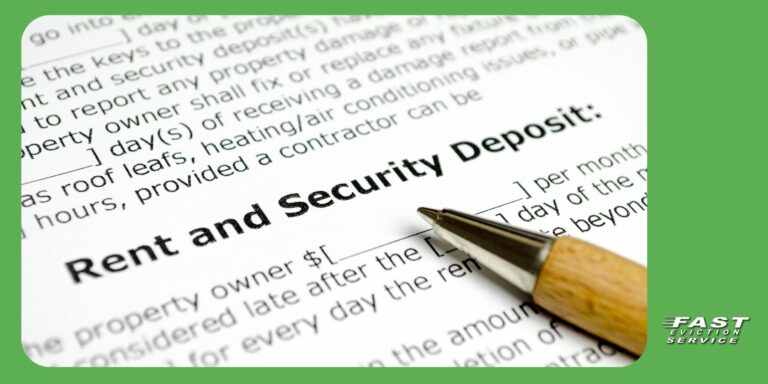You are represented at all times by one of our California Eviction Attorneys | 1-800-686-8686 | intake@fastevict.com | Se habla español
Security Deposit Refunds: Understanding the Ins & Outs

Returning a tenant’s security deposit involves adhering to strict legal timelines and deducting only for valid expenses, such as unpaid rent or excessive damages. Clear communication and detailed move-in and move-out inspections can help avoid disputes and ensure a smooth refund process.







